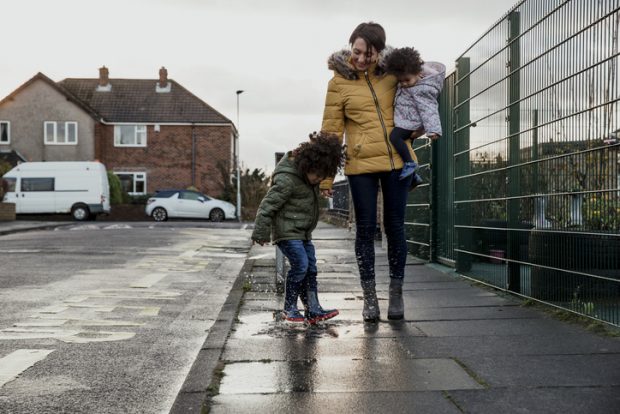
The COVID-19 pandemic has had a profound impact across population groups globally, nationally and locally. The effects of the pandemic have mirrored, and in some cases exacerbated, our entrenched health and social inequalities. Never has the interdependence between health and the economy been closer, or the need for a fairer and more inclusive economic system been clearer.
As a nation we have enjoyed increasingly longer and healthier lives on average since the Second World War. But behind this statistic lie wide health inequalities. The lower an individual’s socioeconomic position, as defined by where they live, their job, qualifications, income and wealth, the more likely they are to experience poor health. It has been estimated that, between 1 January 2003 and 31 December 2018, over a third of deaths in England were attributable to socioeconomic inequality, making this a major and long-term public health challenge.
As we emerge from the pandemic, the full effects of its impact and mitigations such as lockdowns are clearly apparent. Nowhere more so than inequalities in health, either the direct impacts of the disease itself within the most challenged communities, or indirectly, from the differential effects on local economies. Put simply, poor areas and populations are at risk of becoming poorer still and this will hold them back. Therefore, as we aim to plan to ‘Build Back Better’ we also need to ‘build back fairer’ and more sustainably. This means addressing the most fundamental of determinants - the economy which creates jobs and wealth - and protecting the environmental sustainability of future generations by doing this within the means of our planet.
For these reasons, PHE has developed a programme of work on the role and opportunities for Public Health in building inclusive and sustainable economies. We have developed a community of practice knowledge hub to share learning and develop the evidence, and hosted a series of webinars bringing experts to the table on this agenda, providing an opportunity to share the raft of innovative work taking place nationally and regionally on inclusive economies.
This work has culminated in the production of a new resource - Inclusive and Sustainable Economies: Leaving No-one Behind. The resource includes a report and an accompanying data catalogue, which provides a framework for local systems to take collaborative action on the economic, social and environmental determinants of health. Everyone has a part to play in this agenda, and the resource highlights areas for action across multiple sectors, organisations and departments.
The framework makes 9 recommendations for place-based action which can be adapted to local circumstances and priorities, building on existing local strengths and assets. Anchor institutions, for example, are local assets with a great deal of spending power, as well as important employers. By procuring and recruiting locally, supporting training and apprenticeship schemes for people who often face exclusion, and committing to fair and socially responsible employment practices, anchors can boost prosperity in place on multiple levels. Developing local skill bases and the necessary infrastructure to nurture greener, sustainable industries, such as decarbonisation in construction, can also address numerous ISE ambitions.
The resource offers a timely response to the spotlight shone by the pandemic on the health inequalities in our society, and suggests ways to build back better from the impacts of COVID-19, drawing on practice examples from local areas.
In order to ‘build back fairer’, the case is made for recovery from the pandemic to be based on an inclusive and sustainable economic approach, to create healthy communities, places and shared prosperity for all.
There could not be a better time for shaping this agenda and tackling the wider determinants of health. The paper provides a resource to those working at local and regional level to help ensure we maximise this opportunity. PHE’s new ISE resource both supports the government’s priority of ‘levelling up’ poor and isolated communities, and seeks to extend local democracy through elected mayors, economic powerhouses and devolution deals.
This is an opportunity to act on the fundamental social determinants of health in a way we have never been able to do before and to support recovery from the impacts of the pandemic. It will take a generation to really see the difference but this a once in a generation opportunity.
